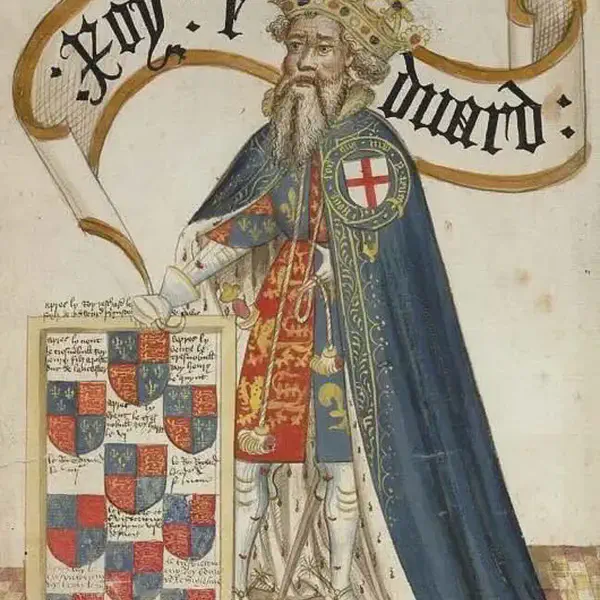
Edward III, on Attaining His Majority, Executes Mortimer on This Date and Banishes His Own Mother, Isabella
November 29, 1330
Edward III (13 November 1312 – 21 June 1377), also known as Edward of Windsor before his accession, was King of England from January 1327 until his death in 1377.
Crowned at 14
Edward was crowned at age fourteen after his father was deposed by his mother, Isabella of France, and her lover Roger Mortimer.
Edward II (25 April 1284 – 21 September 1327), also called Edward of Caernarfon, was King of England from 1307 until he was deposed in January 1327.
Coup d’état against Mortimer
At the age of seventeen he led a successful coup d’état against Mortimer, the de facto ruler of the country, and began his personal reign. After a successful campaign in Scotland he declared himself rightful heir to the French throne, starting the Hundred Years’ War.
Roger Mortimer - 1st Earl of March
Roger Mortimer, 3rd Baron Mortimer of Wigmore, 1st Earl of March (25 April 1287 – 29 November 1330), was an English nobleman and powerful Marcher Lord who gained many estates in the Welsh Marches and Ireland following his advantageous marriage to the wealthy heiress Joan de Geneville, 2nd Baroness Geneville. Her mother was of the Royal House of Lusignan.
Henry, Earl of Lancaster, one of the principals behind Edward II’s deposition, tried to overthrow Mortimer, but the action was ineffective as the young king passively stood by. Then, in March 1330, Mortimer ordered the execution of Edmund, Earl of Kent, the half-brother of Edward II.
Mortimer and Isabella were seized
After this execution Henry Lancaster prevailed upon the young king, Edward III, to assert his independence. In October 1330, a Parliament was summoned to Nottingham, just days before Edward’s eighteenth birthday, and Mortimer and Isabella were seized by Edward and his companions from inside Nottingham Castle.
In spite of Isabella’s entreaty to her son,
“Fair son, have pity on the gentle Mortimer”,
Mortimer was conveyed to the Tower. Accused of assuming royal power and of various other high misdemeanours, he was condemned without trial and hanged at Tyburn on 29 November 1330, his vast estates forfeited to the crown.
His body hung at the gallows for two days and nights in full view of the populace. Mortimer’s widow Joan received a pardon in 1336 and survived until 1356. She was buried beside Mortimer at Wigmore, but the site was later destroyed.
Following some initial setbacks, this first phase of the war went exceptionally well for England, and would become known as the Edwardian War.Victories at Crécy and Poitiers led to the highly favourable Treaty of Brétigny, in which England made territorial gains, and Edward renounced his claim to the French throne.
Edward’s later years were marked by international failure and domestic strife, largely as a result of his inactivity and poor health.